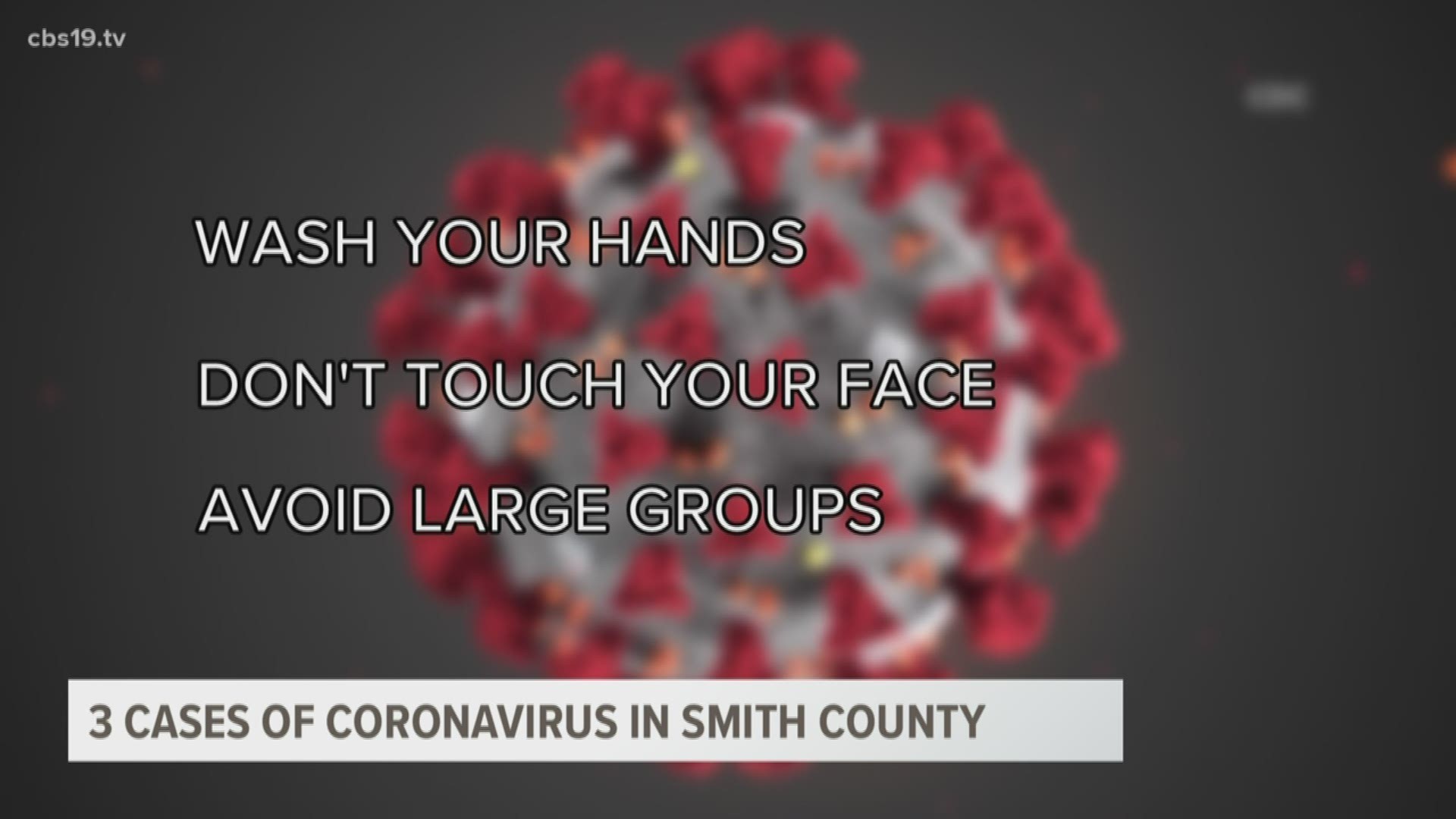TYLER, Texas — Municipal leaders, emergency preparedness staff, and public health officials met at 10 a.m. on Friday, March 13, to discuss emergency preparations being taken at the local level regarding the coronavirus and to encourage Tylerites to take preventive actions.
During the meeting, officials announced there were three confirmed cases of coronavirus in Smith County. One patient is in serious condition.
"We have three confirmed cases of coronavirus here in Smith County," said George Roberts, Cheif Executive Officer at NET Health. "All three of them have recent travel history traveling outside of the United States."
20 people were tested for the coronavirus Thursday in Smith County and out of those 20, three were positive.
"We do know when they arrived and when they began to exhibit symptoms and when they reported to the hospital," said Russell Hopkins, Public Health Emergency Preparedness with NET Health.
Hopkins says officials are working to determine if the three people made contact with others in Smith County.
"The contact tracing is not over in two of these individuals it's going to be wrapped up very quick, another one will take some time," Hopkins said.
Dr. Tom Cummins with UT Health says the coronavirus making its way into Smith County is not a surprise and East Texas hospitals are prepared.
"We've been monitoring and planning for these events for a number of weeks and months," said Dr. Cummins. We have isolation areas and protected areas for our patients to keep them safe as well as to keep our staff safe."
Tyler-area residents are reminded to take the same measures that are recommended annually to prevent the spread of the flu and other respiratory viruses.
Everyone should:
- Wash your hands often with soap and water for at least 20 seconds, especially after going to the bathroom; before eating; and after blowing your nose, coughing or sneezing. If soap and water are not available, use an alcohol-based hand sanitizer with at least 60% alcohol.
- Avoid touching your eyes, nose, and mouth with unwashed hands.
- Practice social distancing - Avoid close contact with people who are sick and stay home if you believe you have symptoms.
- Cover your cough or sneeze with a tissue, then throw the tissue in the trash.
- Clean and disinfect frequently touched objects using a regular household cleaning spray or wipe.
If you believe you have COVID-19 symptoms, please be sure to call before going to your doctor or emergency department to prevent any potential spread.
General information regarding ways to mitigate myths of disease transmission are maintained at: https://www.MyNETHealth.org/services/public-emergency-preparedness/coronavirus

